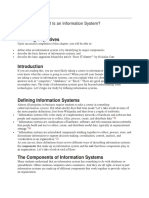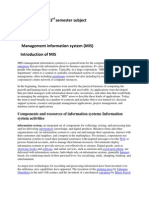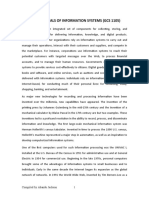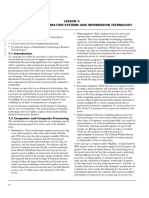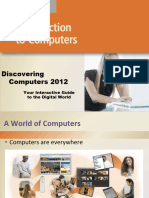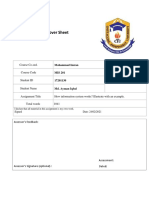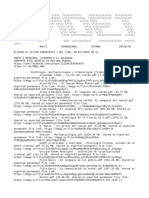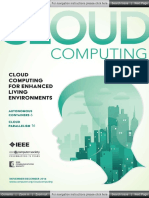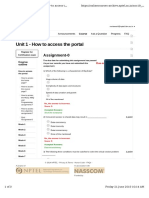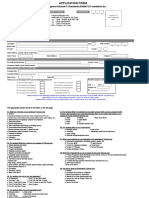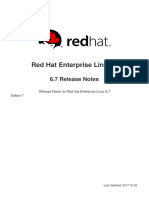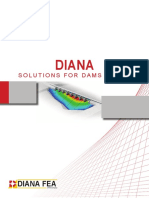What Is A Computer System?
Uploaded by
ScribdTranslationsWhat Is A Computer System?
Uploaded by
ScribdTranslationsWhat is a computer system?
A computer system is a set of parts, identified as essentially electronic devices
(Hardware), programs (Software) and human resources (humanware), which function in
relation to each other with a specific objective, in a given context.
A user with his personal computer who uses usual programs according to his needs
and interests, in his usual environment, constitutes a computer system.
A computer system is focused on the automatic processing of information, while an
information system is focused on the processing of information, which can be carried out
manually, semi-automatically or automatically. Therefore, a computer system can be part of
an information system or coincide with it in the case that the information system carries out
its processes in a fully automated manner.
Differences between a computer system and an information system
Perspective Information system Computer system
Technological Computers may be used but are Computers are used to store,
resources not essential. process and/or
Access to information
Human resources
Both systems include the people who access or produce information
within them, who should be trained to manage them effectively.
Aim
Both systems have a clear purpose. For example, selling tickets for
musical or sporting events, managing a chain that sells sportswear, etc.
We are currently facing
• A rapid growth of digital data, both in relation to the quantity and also to
the complexity of its nature and presentation
• Poor availability of all this information
• A strict legal framework for the protection and preservation of documents
and data
Within computer systems, the so-called Information Life Cycle Management has
become a topic of outstanding importance for the archiving of digital data. This life cycle
varies according to the nature of the company or organization in question, but it always
aims to think of information as invaluable capital, which is reused many times and,
therefore, must be protected with the utmost care.
We all know about the vulnerability of computer data, whether due to occasional
loss or an attack via networks or the Internet. Its study and analysis belongs to the field of
computer security.
LIFE CYCLE AND VALUE CHAIN
One of the concepts that is evolving most rapidly in the information industry is the
value chain, and, consequently, the life cycle. The idea of the value chain is that from the
time information is created until it is used, it goes through a series of processes whose
function, typically, is to add value so that it is more useful to whoever is going to use it.
Normally, this process of increasing value is accompanied by an increase in the price
of the product or service.
In the information industry, the publishing sector is discovering how the life cycle of
one of its main products, the book, can be extended beyond its current final state,
publication in paper form. Thus, some North American publishers are beginning to publish
custom books, especially at the request of university professors, based on chapters from
separate books (for example, "I want a book that has chapter 2 from such a book, chapter 3
from such a book, and chapter 10 from such a book").
For the publishing sector, this means taking advantage of its funds beyond the
publication of the book in its "original" format. The next step will probably be to introduce
books chapter by chapter (and graph by graph, I dare say) to the web, so that their life cycle
can be extended even further.


